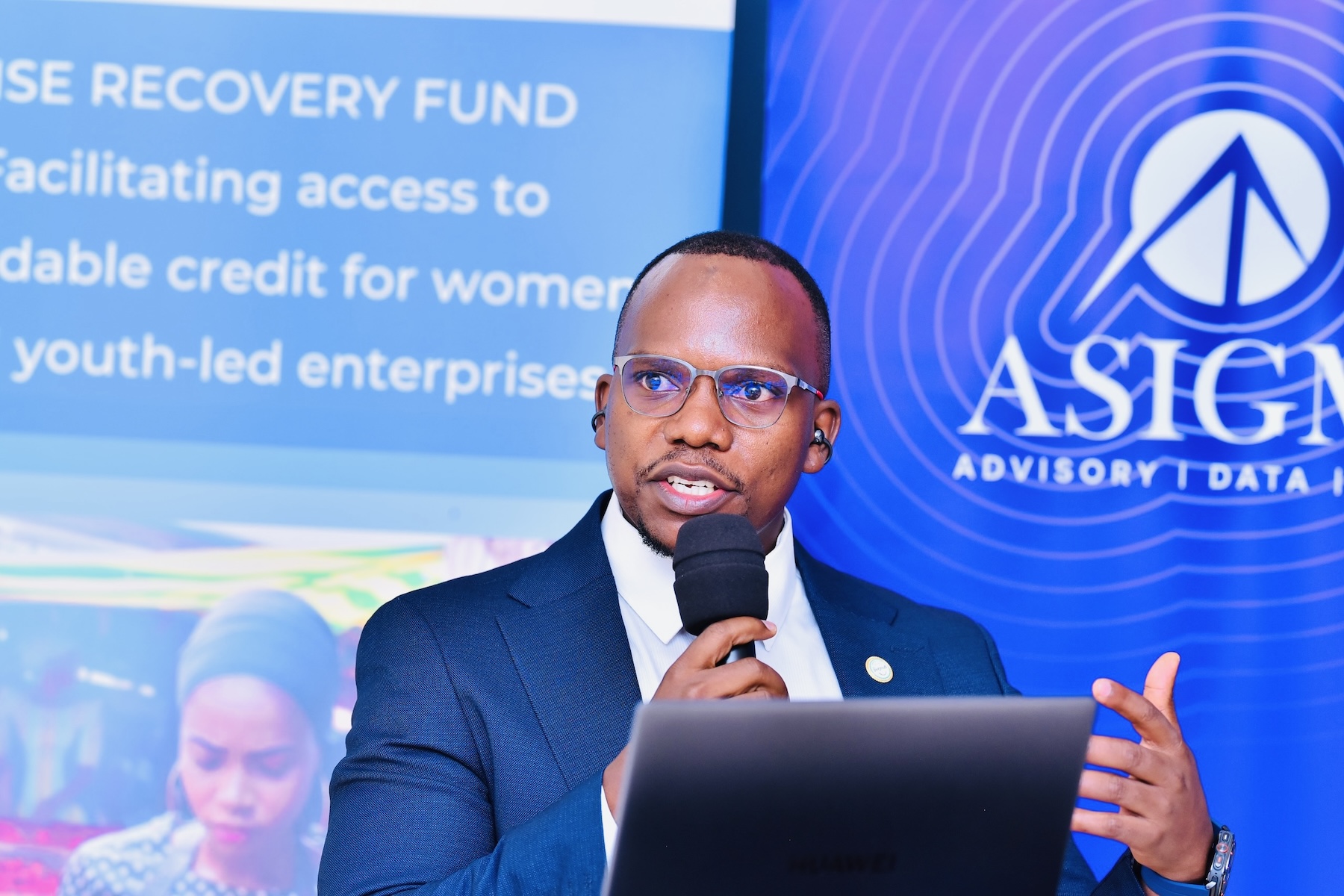Redrawing Uganda’s Credit Map: gnuGrid’s David Opio and His Fintech-led Mission to Democratize Credit in AfricaIn this exclusive interview with Muhereza Kyamutetera, Executive Editor of CEO East Africa Magazine, David Opio Obwangamoi, Founder and ED of gnuGrid CRB, shares his inspiring journey—from growing up in rural Uganda to pioneering the country’s first indigenous Credit Reference Bureau. gnuGrid, a trailblazing fintech company, is committed to expanding access to credit by offering alternative credit scoring solutions for underserved communities. In the interview, David candidly discusses the challenges and triumphs of entrepreneurship in Uganda, reflecting on the valuable lessons he’s learned and his vision for driving financial inclusion across East Africa. He highlights the critical role of mentorship, the importance of informed decision-making, and the personal sacrifices required to achieve success. Additionally, David shares his perspectives on the future of fintech in Uganda and the broader African market, providing invaluable insights for aspiring entrepreneurs navigating the complex intersection of innovation and business.
- Share
- Tweet
- Pin it
- Share
- More
To start, I’d like to understand your personal background and education, and how these experiences have shaped your journey to where you are today.
My name is David Opio Obwangamoi, and I was born and raised in a rural farming community on Buvuma Island. My mother, Angella Nkalubo Nava, an academician with a passion for writing, and my late father, SSP John O’bwangamoi, one of Uganda’s most respected judges, were both strong influences in my life.
Growing up, my mother often reminded me that I was the son of a great man, instilling in me a deep sense of purpose and ambition. I had the privilege of engaging with my father, an experience that shaped my values and vision for the future.
I began my primary education on Buvuma Island before moving to Kayunga, where I attended Obadiah Sajabi Primary School. After excelling in my studies, I continued my education at Nazigo Town SS and later Green Valley Academy, where I ranked among the top students in the district.
With a bursary from St. Balikudembe, I pursued Senior Five, then transferred to St. Lawrence Sonde, where I successfully completed my secondary education in 2006, scoring 24 points. My academic excellence earned me a government sponsorship to study for a Bachelor of Arts in Economics, and I later graduated with honors.
Upon finishing university, I initially pursued employment with the Central Bank, but after two months of unsuccessful attempts, I realized that conventional employment was not the path I wanted to take.
Instead, I returned to my community in Buvuma, where I witnessed the struggles of the children I grew up with. Many remained stagnant, trapped in a cycle of poverty, with no access to basic needs like medical care or financial services.
With no banks on the island, the community depended entirely on informal financial systems, particularly Village Savings and Loan Associations (VSLAs), which served as their primary means of saving and accessing credit.
This experience ignited my passion for creating solutions that not only addressed pressing challenges but also empowered both my community and myself. Drawing from my personal experiences and the obstacles I witnessed, I founded Ensibuuko, a digital mobile application designed to enhance financial access for rural farmers through SACCOs.
Ensibuuko bridges the gap between last-mile populations—primarily farmers—and essential stakeholders, including input suppliers, produce buyers, and financial institutions, enabling them to access previously unavailable financial services. As one of the first fintech companies to pioneer this model, Ensibuuko gained significant traction, particularly on the global stage.
Today, Ensibuuko remains a leading fintech innovator, providing cutting-edge digital solutions to SACCOs and VSLAs, driving financial inclusion in underserved communities and ensuring last-mile populations have sustainable access to finance.
Through Ensibuuko, I had the opportunity to meet influential figures from around the world, including President Obama, Prince Charles, and many others, who continue to serve as sources of immense inspiration. I travelled to more than 68 countries, inspiring young people to embrace entrepreneurship as a tool for solving the pressing challenges facing African communities.
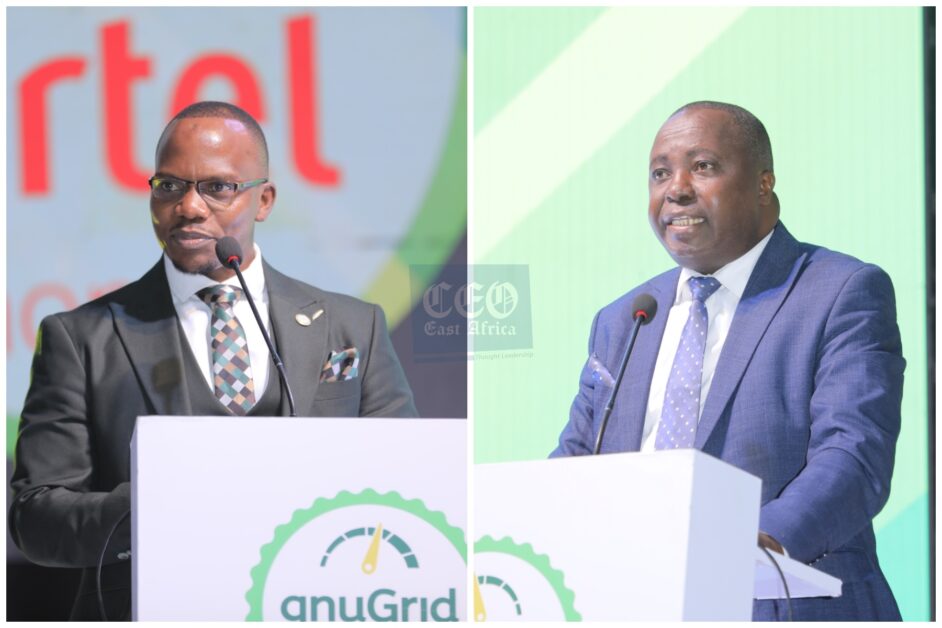
Ensibuuko laid the foundation for my understanding of innovation and entrepreneurship, teaching me invaluable lessons about the power of creating solutions to real-world problems. The decision to become an entrepreneur has shaped my entire journey—had I chosen the path of employment, I wouldn’t be where I am today.
Over the past 15 years, my entrepreneurial ventures have allowed me to impact lives and employ nearly 500 people. Beyond my background in economics, I developed a deep interest in ICT, taught myself how to code, and built my first applications eight years ago—some of which went into production to solve real-world challenges.
I realized that the fusion of technology and economics is a world-class approach to solving critical issues. Access to finance is a fundamental need, as it unlocks purchasing power for essential services such as medical care, clean water, and education, while ICT provides the tools to efficiently deliver those services.
Mastering both fields and understanding their interconnected impact has been one of the most practical and rewarding experiences of my life. Today, I am pursuing a master’s degree in software engineering at one of the world’s most prestigious universities, further deepening my expertise in technology-driven solutions.
Additionally, I have had the privilege of acquiring world-class training in leadership and innovation from renowned institutions such as MIT, Ashoka Leadership Academy, American Express Leadership Academy, and the University of Cambridge, Educate! among others.
By combining my expertise in economics and technology, I have found the ideal balance to advance financial inclusion, making access to finance more inclusive and impactful. This remains the core of my work—and the legacy I hope to leave behind.
Given your upbringing on the islands, where fishing is a common livelihood, and then in Kayunga, one might expect your first business to be something related to that, like a fish store. What made you recognize the broader issues you were facing and decide to address them in the way you did?
I’ve often shared that I have done all kinds of jobs. My entrepreneurial journey didn’t begin with Ensibuuko—it started much earlier, right within my community.
At a young age, I founded Galyawamu, meaning “people who eat together, but eat what they work for.” This initiative began when I was in Primary 4 or 5, where I noticed that wealthy farmers owned vast gardens and plantations. I saw an opportunity to mobilize my fellow teenagers, organizing them to work in these plantations. My role was to find the opportunities, coordinate the work, and ensure they were paid for their efforts. That was my first business, and every holiday, I would reactivate Galyawamu to earn pocket money.
As I transitioned from farming to fishing, I expanded my business model. Though I didn’t know how to fish myself, I organized fishmongers, setting up a system where they worked under my coordination. This ability to mobilize and manage people became a key strength in my entrepreneurial journey.
Similarly, during my time in Kayunga, I ventured into selling sugarcane to four primary schools, including my own. I engaged others to sell sugarcane on my behalf, establishing a small-scale distribution network.
Later, I launched a video library, where I would record and translate video tapes into local language. Many of the young movie translators you see today were part of this early project.
While these ventures helped me earn money, my primary focus remained on education. I firmly believed that school was my gateway to liberation, and I never took it for granted. I excelled academically and, during university, founded the Makerere University Student Academic Association (MUSAA)—an initiative where my deputy ED at gnuGrid once served as the general secretary.
Beyond academics, I was deeply committed to the success of my peers. I served as the Minister of Academics for my faculty, later becoming its Minister of Finance—a role within what is now the School of Economics. Additionally, I was a Guild Council counselor, dedicated to advancing academic matters.
When did you first use a computer, and how did your interest in technology develop alongside your academic journey, especially in Economics?
My mother had a laptop, a Dell, and whenever I had the chance to access it, I would immerse myself in exploring its capabilities. It fueled my passion for technology, and I often wondered how much more I could achieve if I had a laptop of my own at the time.
During my Senior Six vacation, I dedicated my time to learning how computers work, diving into C# and C+++ and Windows XP functionalities—though limited at the time, these skills were invaluable. Despite earning a degree in Economics through government sponsorship, my true passion was always in ICT—it was where my heart truly belonged. However, studying economics gave me a unique perspective, and combining both fields has been the perfect fusion in my entrepreneurial journey.
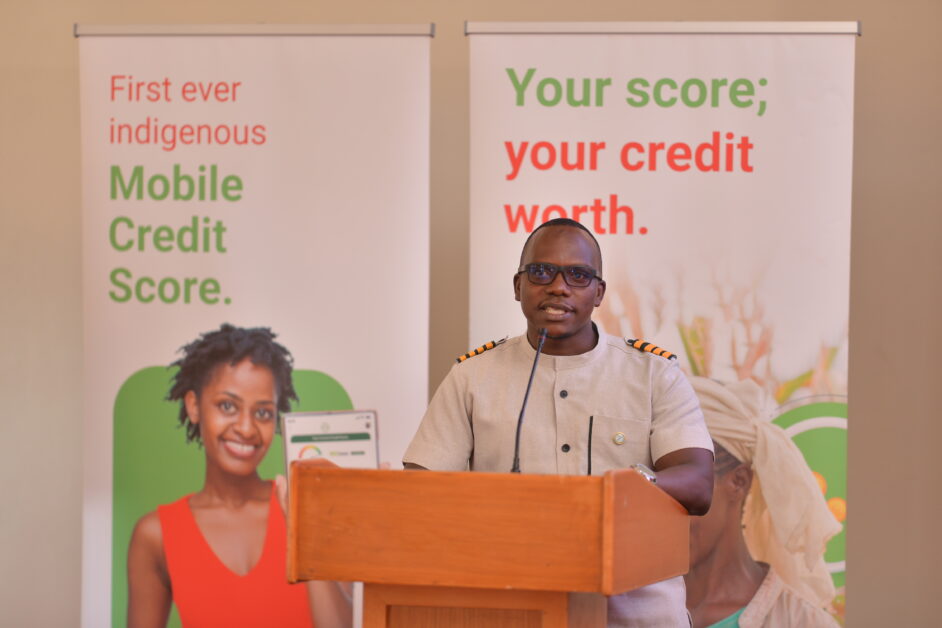
I spent more time on my computer than in the library because I am a visual learner—I grasp concepts quickly when they are demonstrated to me. From 2006 to 2015, I was essentially self-taught in computing, complementing my academic studies with hands-on tech exploration. Despite my numerous responsibilities, I remained focused and committed, achieving exceptional results.
I firmly believe that being an A-student academically does not necessarily translate into success in the real world. Unfortunately, many brilliant first-class students still struggle to find jobs, and that is something that must change. The education system should prioritize real-world impact over just academic excellence. Knowledge needs to be transferred in a practical way, ensuring that students are equipped with the skills and insights they need to thrive in the real world.
What inspired you to start Ensibuko, and how did you identify the need for a digital platform to support rural farmers with access to finance?
I started Ensibuuko on my own, driven by my passion for innovation, with valuable support from Deborah Bryant, who helped translate my ideas into clear visuals and a structured format. During our interactions, the idea found its name—Ensibuuko. Initially, it was called “The Source”, a name inspired by its mission: empowering last-mile farmers to enhance the source of their income—farming—by providing access to affordable financial services that would help them increase earnings and improve their quality of life.
Deborah asked what “The Source” meant in Luganda, and when I responded, “Ensibuko”, the name instantly resonated, marking a pivotal moment in the journey of Ensibuuko.
At the time, I wasn’t strong at communicating my ideas, so I approached Otim Gerald, a Development Economics graduate and teacher at Educate!, who had a natural talent for public speaking. When I shared my vision—explaining how it could transform lives, particularly in last-mile communities like ours—he was intrigued and made a bold decision: leaving his job to join me in making the idea a reality. He became my co-founder and COO.
With no money at the outset, we worked tirelessly, each bringing unique strengths to the table. This collaborative approach helped us avoid conflict and build a solid foundation. Otim and I became unstoppable young entrepreneurs, fully committed to Ensibuuko—our only Plan A. We poured our energy into the company, working day and night to make it thrive.
In 2015, I traveled to the U.S. for an accelerator program, where I pitched to investors and secured early funding. However, this experience shifted my perspective—investors weren’t just interested in the story or the impact; they wanted numbers, measurable results, and a sustainable business model. That moment was a wake-up call, reinforcing the importance of building a profitable and scalable enterprise rather than relying on grants.
Operating in the SACCO space, we uncovered deep-seated challenges affecting SACCOs and informal financial institutions, such as multiple borrowing and high default rates. In 2016, I began conceptualizing a data-centric system that could help SACCOs mitigate risks, de-risk investments, and reduce default rates.
I vividly remember discussing the idea of a Credit Reference Bureau (CRB) with Otim, who was skeptical, saying it would require heavy capital investment and that we didn’t have the resources to make it happen. My response was simple: “Watch and see—one day, I will build a bureau.”
From 2016 to 2019, the concept of the CRB gradually took shape, and after years of persistence, it eventually materialized into what is now known as gnuGrid CRB.
What made you come out of hibernation and pursue a new venture after stepping away from Ensibuko?
After transitioning out of Ensibuko, I spent a year in what I call “hibernation”—a time of personal reflection, family focus, and reinvesting in other businesses. I was enjoying the fruits of my past efforts, but I soon realized that staying idle for too long wasn’t an option. I wanted to spend more time with my family, share my experiences with them, and even write a book to help shape their future. However, the pull of innovation kept calling me back.
In 2019, I was staying with an old friend who had just become a doctor. He encouraged me to reignite my entrepreneurial spirit, telling me, “Opio, you’re still young. You can still generate ideas. Get out there, think of something new, and let’s get to work.”
At first, I was convinced I was done with business—I wanted to simply enjoy the rewards of my hard work. But his words sparked something in me. I took a moment, reflected, and realized that my journey wasn’t over. That was the moment I decided to give birth to a new idea: gnuGrid.
Despite my initial desire for rest, the call to innovate was too strong to ignore—and so, I stepped out of hibernation and embarked on a new venture, ready to shape the future once again.
As a founder, how do you manage the emotional attachment to your project while transitioning it to the next level of growth? At some point, the original passion and vision may not be enough to drive expansion. How do you let go, bring in new people, and shift the focus from the founding phase to scalable growth, while also ensuring that the company evolves beyond your personal connection to it? What has been your experience with this shift?
Building a business is a significant challenge. Many founders want to remain CEOs, but being an innovator is entirely different from managing a growing company. Running a business requires more than innovation—it demands skills in relationship-building, vision consolidation, and long-term strategy. Sustaining and scaling a company is not about maintaining control but about fostering growth.
During my time at Ensibuko, I often reminded my colleagues that titles are secondary to the value we create. I’d rather own one share worth a billion dollars than a hundred shares with no real value. As a founder, you inevitably lose some decision-making power, but the focus must be on expanding the brand and ensuring success.
The success of Ensibuko—or any business—is not just about the founder’s role; it’s about the legacy the company builds. If it grows into a large, Pan-African entity, people will look back and recognize the founders for their vision, not just their positions.
To me, legacy matters more than titles. If gnuGrid ever fails, people won’t blame me personally—they will acknowledge that the foundation I built may have contributed to that outcome. I have seen many founders struggle with letting go, clinging to their positions as majority shareholders, CEOs, and ultimate decision-makers. However, holding on too tightly can hinder growth and, in the end, do more harm than good.
What led you to choose to start a Credit Reference Bureau (CRB) as your next venture, especially given your background in fintech with Ensibuko? What inspired you to pivot towards this direction, and why did you decide to enter a space already occupied by established players?
Even while at Ensibuko, I remember discussing with my co-founder, Gerald, the possibility of entering the Credit Reference Bureau (CRB) space. He laughed and said, “Are you serious? Look at companies like Compuscan—they’re big international players with millions of dollars. How much money do you have?”
I told him, “Don’t limit yourself. Let’s give it a shot. If it doesn’t work, no worries.” He was hesitant, urging me to stay focused, but I felt confident that we could make it work. Even though Compuscan had been acquired by a larger entity, I knew the opportunity was still there.
At Ensibuko, I had built a strong network of people who trusted me, many of whom had significant financial resources. I reached out to one of them—my mentor, Alexis, in the US—and shared my idea for a game-changing product. I told her I needed funding to bring the concept to life, and she asked, “How much do you need?”
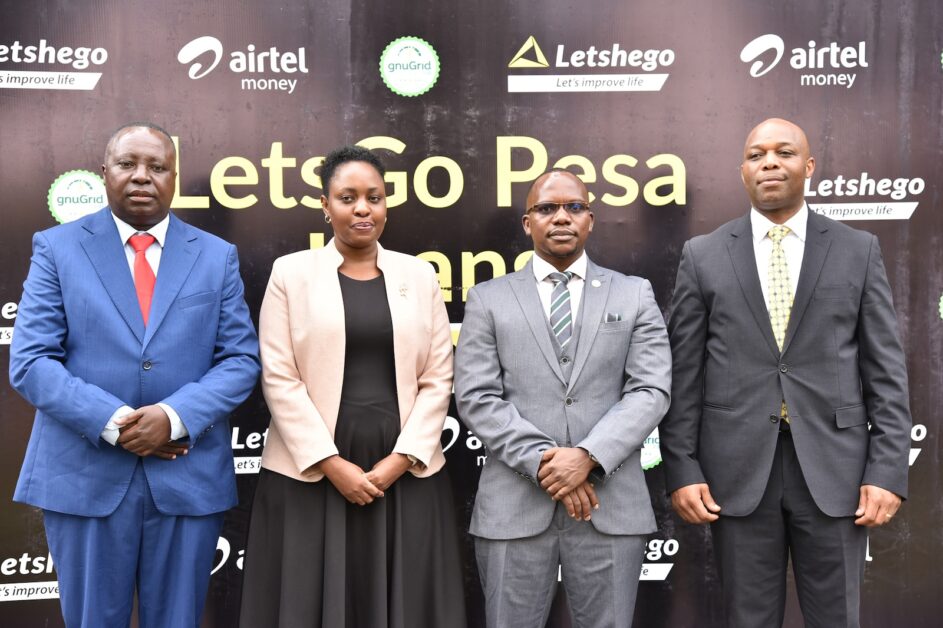
I explained that the amount was substantial, but she believed in the vision. She then introduced me to her friend, John Mark, who was based here. I shared my vision with him, explaining how data was the new gold and how I planned to use it to unlock financial services for unbanked Ugandans.
John listened intently for hours before saying, “What you’re suggesting is brilliant. No one has done this before—except for the existing CRBs. Your direction is unique.” He appreciated that I was targeting a demographic excluded from traditional credit and data-sharing systems.
John took my pitch back to Alexis, and that moment marked the beginning of securing capital for the project. Since then, I’ve built a strong and committed investor community that believes in my ideas and continues to support me financially whenever needed. This trust and backing from my investors have been critical to our success as a company.
Starting a business, especially with limited capital, requires a lot of pitching—both to investors and institutions like the central bank. What has that experience been like for you, and what key lessons have you learned along the way? Many aspiring entrepreneurs have great ideas, but often struggle to get their foot in the door. How have you managed to open that door and make your vision a reality?
I believe everything comes down to mindset—specifically, a results-oriented mindset that is fully committed to delivering. When I set my mind on something, I push relentlessly until I achieve it.
We started with very limited resources, but I rallied a team of dedicated tech experts—people I had previously worked with at Ensibuko. Whenever I reached out to them, they dropped everything to come on board. Our initial work was informal: we began collecting data from SACCOs and VSLAs, aiming to generate insights that could help mitigate issues like multiple borrowing.
One day, GIZ heard about what we were doing and showed interest. They invited me to share our story with a larger audience, and among those present was the Bank of Uganda (BOU). After hearing my pitch, someone from BOU said, “What you’re describing could actually become a Credit Reference Bureau (CRB). Have you considered applying for a license with the Central Bank?”
I was eager to try, so I agreed to pursue it—but the application process turned out to be long and challenging. We spent two years applying for the license, during which we invested heavily—setting up an office, buying servers, and spending money without any revenue coming in. There was always the risk of rejection, but I refused to back down.
To fund the process, I raised around $3 million, but skepticism lingered. One day, an investor called and asked, “Are we really going to get this license? You keep requesting funding, but we haven’t seen results yet.”
I reassured him, “This is the path we’ve chosen. We’re going for it, and there are no shortcuts. Believe in me—walk this journey with me. If you pull out now, you’ll lose everything.”
During this time, I prayed fervently, rallying my prayer warriors. We needed the license, and by the end of 2021, the Bank of Uganda granted it to us.
That moment marked the beginning of something bigger—opening doors to countless opportunities that followed.
You’re the first person I’ve interviewed who has mentioned the role of prayer in business. How important do you believe prayer is in guiding and sustaining your entrepreneurial journey?
I am a deeply spiritual person, and my faith in God profoundly shapes both my life and business. While some may doubt it, I have witnessed firsthand the immense power of prayer. Time and again, I find that when I set a goal and pray about it, it unfolds exactly as I envisioned. But prayer isn’t just about spoken words—it’s about a deep, unwavering connection between faith and action, one that manifests in real, tangible outcomes.
I remember an early moment at Ensibuko, when I approached one of my co-founders for investment. He had saved up money from his job, and I told him, “I know you’re working hard for your money, but trust me—I’ll be the one to help you make it in life.” He laughed and responded, “Mark this day. In five years, you’ll tell me I was right.”
Now, every year on his birthday, he reflects on that moment. He attributes everything he has built to the step I encouraged him to take, a testament to the power of faith, vision, and decisive action.
For me, faith is inseparable from hard work. I firmly believe in the invisible power of trust and belief, but I also understand that prayer alone is not enough. The Bible reminds us that “you must work to eat”, and so while I lean on God, I also put in the effort, make the sacrifices, and push forward to turn prayers into reality.
Before we dive into the milestones of gnuGrid, let’s talk about the challenges you faced in the early days. You mentioned spending two years applying for the license, investing a significant amount of money without any earnings, and facing the uncertainty of whether things would work out. What were those early days like, especially when you were still building the foundation and securing your first clients?
Entrepreneurship is not a solo journey. Success requires the support, belief, and contributions of others. If you think you can do it all alone, you’re wasting time and resources.
Before gnuGrid became a licensed bureau, I met Dr. Sylvester Ndiroramukama, who works with Uganda Cooperative Savings and Credit Union (UCSCU). When I pitched my idea to him, he immediately saw its potential. He shared that many SACCOs were using WhatsApp groups to track multiple borrowings—a gap that my solution could formally address.
Despite our limited resources, Dr. Ndiroramukama introduced me to key players in the industry. At the time, we were still raising funds, but he ensured that I attended various events where I could pitch gnuGrid. He gave me the platform to speak for up to three hours in front of SACCO leaders, significantly boosting adoption of our solution. Many of our current SACCO clients discovered us through these events, and his team was instrumental in helping us navigate those early stages.
I told him, “In five years, you’ll look back and know that supporting gnuGrid was the right decision.”
In those early days, we faced intense regulatory hurdles, especially around data protection. Adoption was slow, and skepticism was high. I remember checking our dashboard and seeing only one or two transactions a day. People were hesitant to fully embrace our solution.
Fast-forward to today, we handle over 10,000 transactions daily, and I no longer check the dashboard—I focus on the revenue coming in.
Beyond Dr. Ndiroramukama, many others believed in our idea and supported us. One of them, John Mark, made enormous sacrifices—even offering his home as our first office. We worked out of his house with very little, and he provided resources that he may not even remember.
Our early team, including our MD, joined when she was just 23 years old, at a time when we couldn’t afford competitive salaries. Yet, they believed in the vision, committed their time, and sacrificed for the mission. Their dedication and faith played a huge role in getting us to where we are today.
Even without money, it was the people who believed in us that made all the difference.
As an entrepreneur, you’ve likely had mentors and sponsors who spoke on your behalf in rooms you couldn’t access, and a team that believed in your vision even when resources were scarce. Many startups struggle with maintaining morale when facing financial challenges, like not being able to pay rent or salaries. What lessons or tips can you share on how to keep hope alive in such situations? How do you keep your team motivated when you’re uncertain about the future?
You have to breathe life into your vision. Leadership is much like leading a battle—and while I’m not a soldier, I understand that in moments of hardship, a leader must stand at the front, giving strength and courage to those following behind. You have to demonstrate resilience, showing your team that despite the challenges, success is within reach. And when victory comes, the rewards will flow down to everyone involved.
It’s a lot like being a politician rallying support—constantly communicating the vision, keeping the team engaged, and reminding them that the journey isn’t over yet. Yes, we’ve started, but we are only halfway there, and I need everyone to stay committed to the finish line.
A key part of leadership is having a structured reward system. In the early days, when resources were scarce, I couldn’t offer much, but as we progressed, I made sure to increase salaries, introduce benefits, and acknowledge the hard work of my team.
However, beyond compensation, the most powerful tool is daily reinforcement of the vision. Ensuring that every team member feels connected to it is essential—even when you’re not physically present.
I rarely go to the office myself, but my team wakes up every day motivated, driven by our shared mission, and committed to pushing the vision forward. That’s the true measure of leadership—building a movement that thrives beyond your presence.
Could you walk us through your business model and explain how gnuGrid generates revenue? What are the key sources of income, and how do you monetize the services you provide to your clients?
We are a data-driven organization, committed to generating insights that empower lenders to make informed, data-driven lending decisions. We believe that the future of lending is digital, shaped and powered by both conventional and alternative data.
To support this vision, we have developed innovative methods for collecting, processing, and utilizing data to enhance our services.
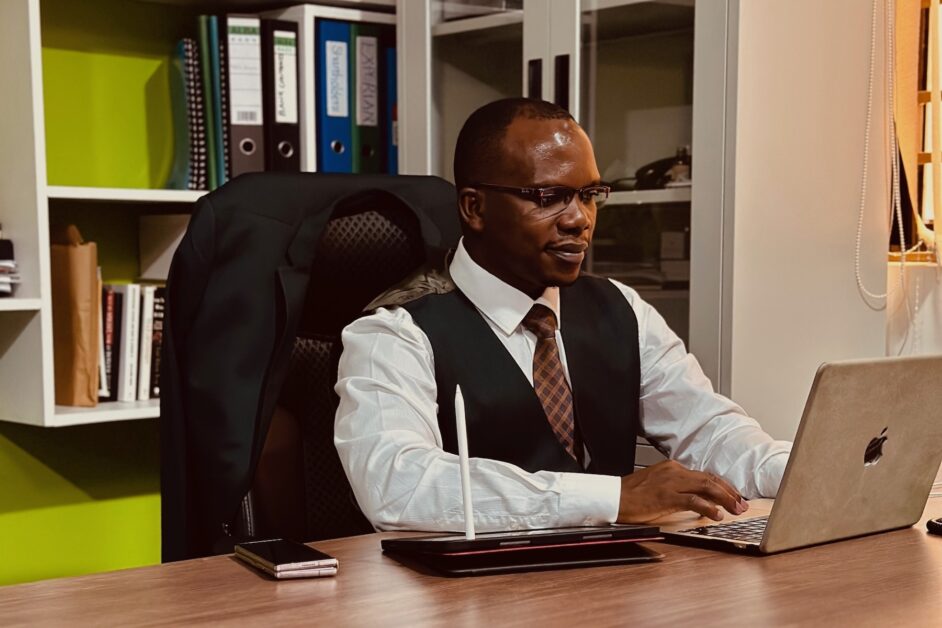
For instance, we offer credit scores, including the one we launched in partnership with Airtel Money Uganda, one of our key allies in financial inclusion. This credit score is built on alternative data, helping many digital lenders assess risk more effectively.
Additionally, we introduced the Loan Market, a groundbreaking digital marketplace that enables financial institutions to onboard “new-to-bank” customers, expanding access to credit and driving financial inclusion.
Would you say that gnuGrid’s entry into the market has not only been beneficial for your shareholders, employees, and the company itself, but also contributed positively to the broader market and industry? How has your presence helped drive innovation or address gaps in the market?
Absolutely. Before we entered the market, accessing a credit report was cumbersome. Customers had to purchase a financial card, sometimes for 35,000 UGX, and then pay an additional 30,000 UGX for the credit report itself. It was seen as more of a compliance requirement than a valuable financial tool, even though understanding one’s credit behavior is crucial.
We’ve fundamentally changed that narrative.
Unlike in many other markets, a credit score in our ecosystem is viewed as a form of reputation—almost like collateral. This is the message we’ve worked hard to embed into people’s financial thinking. Today, customers pay daily just to check their credit score, a remarkable shift from the past, when they would only check it before applying for credit. We’ve encouraged individuals to monitor their scores regularly to gain deeper insights into their financial reputation and understand the products and services they can access as a result.
This transformation has allowed us to reach an entirely new customer base—one that traditional financial institutions couldn’t access. Beyond simply expanding access to finance and fostering financial inclusion, we’ve reshaped perceptions around data itself. People now recognize that their financial behavior—reflected in their credit score—directly influences their ability to secure credit and other financial services.
The ability to leverage a credit score to access financing across multiple financial partners has had a profound impact on the market. Even the concept of “window shopping” for credit—where individuals can **compare offers from different banks based on their financial standing—is a game-changer.
Related

 Could Musa Mageere be Preparing to Take Over the Reins at Luuka Plastics?
Could Musa Mageere be Preparing to Take Over the Reins at Luuka Plastics?
This shift in how people perceive their financial reputation is unlocking new opportunities and driving meaningful transformation across the industry.
Looking back from 2021 to today, especially after receiving your license and navigating through the challenges of COVID-19, what would you say are the key milestones and achievements for gnuGrid? Are there any notable partnerships that have played a significant role in your success?
Receiving the license was a major milestone—our first true achievement. We are deeply grateful to the central bank for granting us the opportunity to become the first indigenous entity in this space. It was a bold decision, and one that required significant effort, but ultimately, they made the right call.
Another defining moment was the launch of the first mobile credit score in partnership with Airtel Money Uganda. This innovation added tremendous value to gnuGrid, enabling over 14 million Airtel Money customers to establish a digital footprint that grants them access to credit. This shift has been transformative for financial inclusion in Uganda.
Building on this success, we also introduced the Loan Market, the first digital loan marketplace, where borrowers can compare credit options and secure the best deals available.
We have developed one of the most reliable credit scoring systems, equipping financial institutions with tools to mitigate risk more effectively than ever before. Our work has garnered recognition across various platforms, including being named one of Uganda’s 100 Leading adn Most Admired CEOs in the sector by CEO East Africa Magazine. However, beyond accolades, I am most proud of the impact we’ve had on businesses—the opportunity to share ideas, co-create solutions, and support fellow CEOs on their journeys.
Although we haven’t received many formal awards, our presence is undeniable, with numerous online mentions that highlight our influence. From a business standpoint, our biggest achievement has been generating revenue and ensuring sustainability. Financial stability is crucial, and today, we are not only making money but thriving.
Our investors are excited about our growth, and by the end of the year, I plan to begin repaying them. Their confidence in our vision remains strong, and they have committed to reinvesting to further accelerate our expansion. The days of struggling for funding are behind us—we now have a steady stream of customers using our products daily, reinforcing our mission and future potential.
How would you describe gnuGrid’s market share in the financial services space, particularly in the context of your competition? What strategies have you employed to expand your footprint, especially in reaching banks and underserved populations?
In the tier-four financial space, we are the largest player in terms of the number of institutions we work with and the flexibility we offer. We have positioned ourselves as the last-mile solution, focusing on expanding access to finance for underserved groups, particularly youth and women, who have historically been excluded from traditional financial services.
When we first entered the market, we initially tried selling credit reports, following the model of established players. However, we quickly realized that approach wasn’t working—we were competing with well-established incumbents, and it became clear that we needed to differentiate ourselves.
So, I sat down with my team and said, “We need to bring more value to the banks.” That’s when we pivoted to alternative scoring, creating a new model tailored to the needs of financial institutions.
We discovered that banks were eager to expand their reach to last-mile customers but needed data-driven insights to make informed lending decisions. Since then, out of Uganda’s 30 fully regulated banks, we’ve successfully onboarded 10 in just six months, with many more expressing interest in partnering with us.
Today, banks see us as a trusted and innovative partner. Whenever they need tailored financial solutions, they turn to gnuGrid. We co-create products with them, ensuring they meet their needs while fostering financial inclusion.
By the end of this year, we anticipate partnering with nearly all of Uganda’s banks, further solidifying our role as a key player in the financial sector.
You mentioned the concept of the digital loan marketplace—could you explain how it works in detail? How does gnuGrid facilitate the connection between borrowers, financial institutions, and other stakeholders within this marketplace?
Yes, we have a digital loan marketplace, which I often describe as an e-commerce platform for loans. It all begins with credit scoring.
For example, imagine Bank X wants to target women aged 18 to 35 but lacks the data to identify this group. They approach us, and together, we co-create a tailored lending product. We then design a customer journey, incorporating specific business rules into our system. This allows us to whitelist a defined demographic—in this case, women aged 18 to 35 with credit scores between A and B.
Once these women opt in, their data is instantly scored, and our decision engine assigns them a loan limit. Within less than a minute, they can apply for and receive a digital loan.

In this marketplace, customers can be whitelisted by multiple financial institutions searching for the same demographic. For instance, one bank might be targeting women in the 18-35 age range with Class A to B credit scores, while another might focus on customers within the Airtel ecosystem or merchants seeking microloans from agents.
The key advantage is that we have access to vast amounts of data, allowing us to pre-score individuals and customize loan offers accordingly. This helps financial institutions offer targeted products to the right customers while streamlining the loan application process, making credit more accessible, efficient, and data-driven.
We’ve been hearing from several mid-range fintechs, and a common challenge they face is competition from the big players, particularly telecoms and large banks, who are moving into their space and trying to squeeze them out. From your experience, how has it been dealing with these larger competitors in the marketplace? What role do you think government and decision-makers should play in protecting indigenous fintech players to ensure they can thrive without being overshadowed by the big players? What’s your perspective on this challenge?
First, copyright and patent laws need urgent reform. While regulations exist, they are impractical and unnecessarily cumbersome. For example, the patent process requires publishing an innovation in a newspaper for three to six months. If no one challenges it, the patent is granted—but during that waiting period, anyone can copy the idea and claim it as their own. This system needs a major overhaul to ensure true protection for innovators.
Additionally, we need pro-business policies like those in Rwanda, where foreign businesses must partner with local entities. This approach ensures that entrepreneurial benefits stay within the local economy and prevents indigenous players from being displaced by large multinational corporations. Such policies would be highly beneficial, especially given how big companies with substantial capital tend to dominate the market, leaving local startups struggling to survive. Many don’t even make it past their second year due to a weak startup ecosystem and unstructured business environment.
I’ve had the opportunity to experience thriving ecosystems like Silicon Valley, where structured systems support ideation and the scaling of new ventures. Here, however, most young entrepreneurs rely on government grants, yet there is little infrastructure to sustain or scale innovative ideas. When I raised funding for Ensibuko, not a single penny came from the government, yet I was celebrated abroad—but back home, it was business as usual.
Another major challenge is regulation. Large corporations often operate exploitatively, and many groundbreaking ideas never see the light of day because their creators fear being copied. These dominant players focus on monopolizing the market rather than fostering healthy competition. Regulation needs to evolve to promote partnerships, ensuring a win-win environment for both established companies and startups. While big players may have the financial influence to shape the conversation, regulations must prioritize fair competition and protect smaller innovators.
The Central Bank’s introduction of the agency element in CRBs is a positive step forward. It allows fintechs like Ensibuko to collaborate with established institutions without replicating their services, making it easier to integrate into the financial ecosystem.
For fintechs to truly thrive, regulations must encourage cooperation—not just competition. Right now, the system is heavily skewed in favor of large corporations, making it difficult for smaller players to grow and scale. From my experience co-creating the payment switch, I have witnessed firsthand the challenges of regulating the fintech space. The discussions were mixed, with some concerned that regulations would stifle their growth rather than enable it.
Ultimately, effective and fair regulation is critical to ensuring the success of both large and small players in the financial ecosystem.
There’s been a suggestion that the financial sector should implement a tiered system, similar to how banks, MDIs, and PSOs are structured, with different levels of licenses based on the size and scope of the business. For example, larger entities like MTN and similar players could have their own tier, while smaller businesses and startups could operate at a different level. What are your thoughts on this idea? Would a tiered licensing system help create more balance in the market, especially for emerging players?
A tiered licensing system could work to some extent, but it presents complex challenges.
For instance, telecoms and fintechs are both facilitating e-money payments, meaning they often require the same type of license, particularly from the Central Bank, as they essentially offer similar services.
For banks, tiered licensing exists due to capital requirements—larger institutions require substantially more capital, which determines their licensing tier. However, if we were to apply this tiered approach to telecoms and fintechs, based solely on size, there could be unintended consequences.
Smaller fintechs, for example, might struggle to meet capital requirements, potentially excluding them from the system, while larger entities with greater resources could navigate the process more easily.
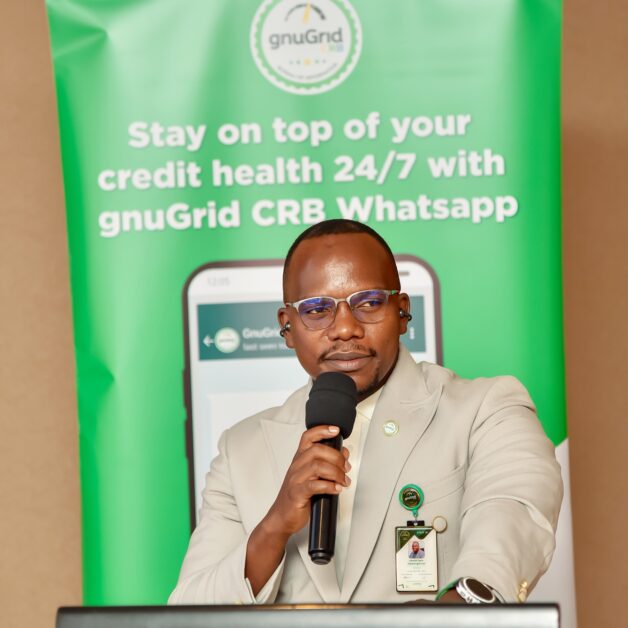
The key challenge is determining the right criteria for selection. If telecoms are allowed to facilitate transactions, they might also want to provide infrastructure, which complicates the landscape for fintechs. Many fintechs operate with virtual servers and lack the physical infrastructure that larger corporations possess.
For fintechs to compete with dominant players, they would need significant capital and infrastructure, which many simply don’t have. Without a clear framework to support emerging players, a tiered system could inadvertently limit competition and stifle innovation.
Looking at the fintech landscape in Uganda and the region, particularly from the time you started to today, what significant changes and trends have you observed over the past decade? How would you describe the current state of fintech in Uganda?
The fintech space is vibrant, yet still in its early stages of development. Many fintechs currently operating offer similar services, primarily in mobile money management or management information systems (MIS) software. While these solutions have paved the way for financial innovation, there remains significant room for diversification.
Encouragingly, some fintechs are expanding beyond these traditional offerings. For instance, the health tech sector has seen promising growth, with companies like Rocket Health introducing innovative concepts and Clinic Pesa streamlining payment solutions. However, the fintech ecosystem still holds tremendous untapped potential.
One of the biggest opportunities lies in data-driven solutions. Leveraging data effectively can unlock new possibilities, particularly in fraud prevention and financial security. While Credit Reference Bureaus (CRBs) play a vital role in tackling fraud, there are alternative approaches that could further strengthen risk management.
For example, fintechs can harness location-based services, geolocation technologies, and advanced KYC (Know Your Customer) verification methods to create robust digital security frameworks. These emerging areas present a huge opportunity for innovation, allowing fintechs to expand beyond digital payments and MIS solutions while contributing to greater financial inclusion and security.
With the right investment in data and technology, fintech can transform industries, streamline access to financial services, and foster a more dynamic and inclusive digital economy. There is immense potential for innovators to push boundaries, ensuring the sector evolves beyond its current scope and into new, high-impact areas.
Apart from the obvious challenge of capital, what other factors do you believe are slowing down progress in the fintech space? From a broader perspective, what changes or actions do you think could be implemented to accelerate growth and innovation in the sector?
Regulation is absolutely essential for driving innovation and economic growth. If I had the opportunity to meet the President, I would propose the establishment of a dedicated department for innovation, led by a young, dynamic minister—someone with fresh ideas and a forward-thinking approach, rather than a representative of the old guard.
This department should focus exclusively on fostering and promoting new ideas, because innovation is the key to Uganda’s progress. Ideas lead to the creation of goods and services, yet our economy is overly reliant on imports while domestic production remains limited. We have the resources and talent to change this, but it requires a well-structured regulatory environment and robust support systems for startups.
While initiatives like the Uganda Investment Authority and Enterprise Uganda exist, their actual impact on ground-level innovation remains unclear. Entrepreneurs need practical support, not just policies and reports. Without effective regulatory frameworks and tangible assistance, Uganda risks missing out on game-changing innovations that could transform our economy.
The Ministry of ICT used to fund innovators through the National ICT Initiatives Support Programme (NIISP), but there have been concerns about the efficiency and impact of such programmes. Have you ever been involved in or witnessed these issues firsthand? What are your thoughts on the management and allocation of funds under NIISP, and how can the system be improved to better support genuine innovation in Uganda?
I chose not to get involved because, despite the allocation of funds, there were no tangible results to justify participation. Can we track the entrepreneurs who benefited from this funding? Were any viable solutions actually developed under the National ICT Initiatives Support Programme (NIISP)? I would love to review the report, extract key insights, and benchmark its effectiveness.
Do we have a strong startup ecosystem? Not really. While great initiatives like Hive Collab, Outbox, and Innovation Village exist—driven by passionate individuals working to streamline innovation—the government’s investment in these efforts has been insufficient.
The real innovation in ICT is happening at the grassroots level, yet the government has not provided the necessary support to nurture and scale these promising ventures. Without structured investment and long-term backing, we risk losing valuable innovations that could transform the industry.
If you were appointed Minister of Innovation, what would be the first things you would stop in order to create a more conducive environment for startups and innovation? What current practices or policies do you believe are hindering progress, and how would you address them for greater impact?
My focus would be on championing local innovations, rather than supporting companies that import already manufactured goods or external economic models. I would develop policies that empower and incentivize local entrepreneurs, ensuring more favorable terms to nurture and strengthen the spirit of entrepreneurship in Uganda.
Additionally, I would work to build a stronger startup ecosystem. Uganda has countless innovators, but many struggle to access the support needed to turn their ideas into successful ventures.
During my time working with some NGO, we sought out community-driven innovators who were making a real impact in their regions. We discovered many individuals addressing critical local challenges, yet lacking the resources and platforms necessary to scale their solutions.
I proposed bringing these visionary entrepreneurs to the forefront, ensuring they receive the resources, mentorship, and funding needed to develop and refine their innovations. By creating a more supportive and structured ecosystem, we can empower Ugandan entrepreneurs to drive sustainable change and strengthen the country’s economic future.
How adequate do you think our current education system is in preparing students for the demands of today’s innovation-driven world? Do you believe the system is effectively nurturing the right skills and talents for the future, or are there significant gaps that need to be addressed?
The education system is often seen as an investment, but what is the actual return on that investment? While education provides valuable knowledge, much of that information is now easily accessible online. However, our system falls short in preparing individuals to create jobs—instead, it predominantly produces job seekers. This is a key factor behind high unemployment rates, as we continue to consume services created elsewhere, rather than developing our own innovations.
To drive progress, our education system must shift toward fostering creators and innovators—people who generate ideas and solutions, rather than simply seeking existing structures to fit into. Some might argue, “If everyone becomes a creator, who will work?” But even in a world full of creators, the quality of work and employment structures must evolve accordingly.
Additionally, the employment process itself is flawed—graduates are often required to have experience they haven’t had the chance to gain, leaving many unable to apply their education in real-world settings.
Our education system needs a fundamental transformation, particularly from high school onward, to instill entrepreneurial thinking and practical skill-building. Countries like China have adopted a more hands-on approach, identifying students’ talents early and guiding them toward fields that align with their strengths.
For example, a child interested in software engineering is exposed to that field early, rather than being required to study broad cultural subjects that may not align with their aspirations. We need to embrace similar strategies, moving away from outdated courses like history and divinity, which—while valuable—do not always translate into the practical skills required for today’s economy.
Take divinity studies, for instance—why should a student spend two years studying theology if they don’t intend to become a philosopher or pastor? A person curious about spiritual teachings could simply read the Bible independently.
Too many high school courses stifle creativity, limiting our ability to develop the entrepreneurial mindset and technical expertise necessary to thrive in the modern economy.
Looking at the future of gnuGrid, Uganda is a relatively small market, and geographically, it’s possible to move around it within a month. Do you have plans to expand beyond Uganda’s borders, and how is that expansion coming along? What markets are you considering, and what steps are you taking to grow regionally or internationally?
Before diving in, I want to commend CEO East Africa Magazine for its strong and influential brand. Over time, I’ve noticed that more people want to associate with it, a testament to its growing reputation. When I travel, I often see international magazines in airports and on flights, and I believe CEO East Africa Magazine should champion local content, showcasing stories from unique geographical locations to the world.
The stories you profile are both relevant and much-needed, offering perspectives that mainstream global magazines often overlook. While international publications tend to focus on universal issues like homelessness or poverty, these topics rarely dominate mainstream media discussions—yet they deserve thoughtful coverage.
As a brand, CEO East Africa Magazine has the potential to position itself as a powerful force, highlighting the best of Uganda and its people. While challenges exist, there is a valuable space to market the country’s vibrancy, resilience, and untapped potential. This will require time and effort, but my hope is for CEO East Africa Magazine to become a platform that people aspire to be part of—just as young professionals dream of interning at Google or Microsoft. With dedication, this influence will continue to grow.
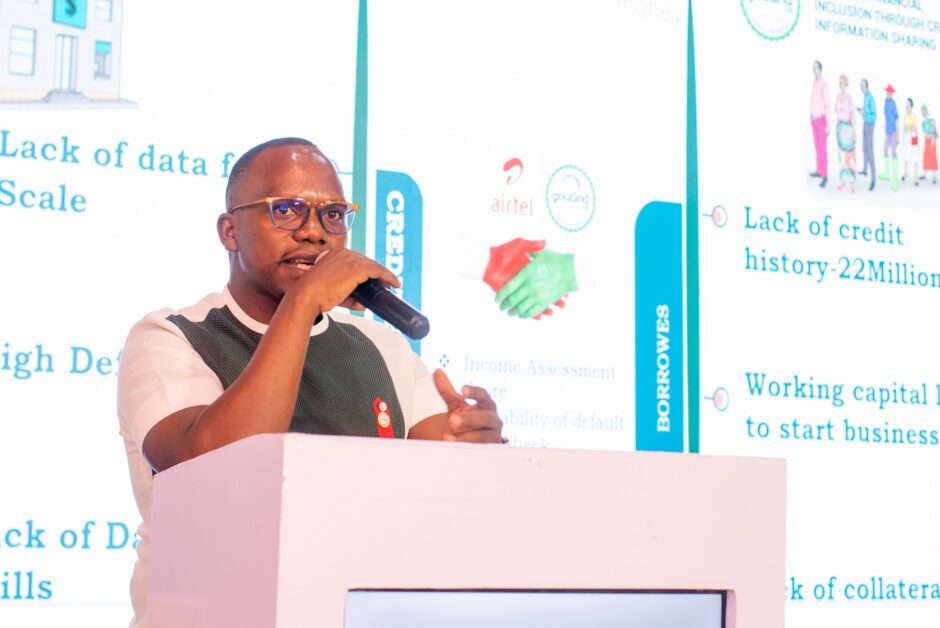
The same philosophy applies to gnuGrid. According to the FSD survey report, Uganda has 22 million adults eligible for credit. If each of them takes two or three microloans per month, the market potential is immense—far beyond the current regulated financial sector, which only reaches around 2.3 million people. As a company, we see a tremendous opportunity to serve the millions of Ugandans who still need access to credit.
Of course, there are challenges—such as the lack of a universal unique identifier and poor mobile network coverage in many areas. These obstacles are significant, but we are committed to unlocking this potential. Through partnerships like our collaboration with Airtel, we now have visibility into over 14 million Ugandans. Even if each of them borrows just once a month, with a minimal loan amount, it represents a massive opportunity.
The challenges Uganda faces are not unique—similar barriers exist across other markets, including Rwanda and Congo. That’s why we are actively working on a Pan-African strategy to scale gnuGrid across Airtel’s 14 operating countries. Conversations are ongoing, and Airtel has been highly supportive of this initiative.
Uganda is serving as our testing ground, and through carefully planned expansion, we aim to bring these solutions to multiple markets where Airtel operates. This is a deliberate, strategic move to scale the impact of the work we’ve pioneered here, ensuring greater financial inclusion across Africa.
What advice would you give to young entrepreneurs looking to enter the fintech space, especially as startups? Someone once described it as an industry of “blood and sweat,” and that if you’re not ready to work hard, you should look for another path. Given your experiences—the battles you’ve fought, the wins you’ve achieved—what would you tell someone who’s just finishing their studies and preparing to get started in this space?
First and foremost, young entrepreneurs must be ready to start and fully commit. As you mentioned, this industry demands “blood and sweat,” requiring significant sacrifices to succeed. Consistency and persistence are essential. Too often, entrepreneurs start something, face setbacks, and abandon it, only to jump to another venture. The reality is, without unwavering commitment, a business will not survive. I’ve seen many who attempted to juggle multiple projects at once, only to lose their companies and disappear from the space.
Additionally, entrepreneurs must act quickly, especially in fintech, where the industry evolves at a rapid pace. Sitting on an idea for one or two years while refining it is a risk—someone else will beat you to it. Instead, focus on building a Minimum Viable Product (MVP). Don’t wait for perfection—launch it, collect customer feedback, and refine it as you go. This approach has been critical in my own journey.
Regulation is another major factor. We’ve seen companies lose their licenses due to non-compliance, making it crucial to respect regulatory frameworks. Every fintech should prioritize compliance, ideally with an in-house expert dedicated to navigating regulatory requirements. The industry is also rife with fraud and cybersecurity threats, so businesses must implement strong security measures to protect their infrastructure. A security breach can devastate a company’s reputation, and once trust is lost, it is incredibly difficult to rebuild.
Lastly, choosing the right partners and co-founders is essential. I’ve seen many promising startups fail because the founder and co-founder were misaligned. When leadership lacks shared vision and mutual understanding, it breeds tension, ultimately hurting the business.
I’ve also witnessed entrepreneurs, after securing their first round of funding, immediately spend it all rather than reinvesting in their business. Patience, commitment, and alignment with the vision are non-negotiable—without them, even the most promising idea can fall apart.
Life as an entrepreneur can be fast-paced, chaotic, and full of unexpected challenges. How do you stay focused and maintain your direction amid all the ups and downs? Do you have any survival tips or coping mechanisms that help you navigate this journey and keep moving forward?
Entrepreneurship is a challenging journey, full of obstacles that can easily consume you. For me, the key to staying focused is remembering why I started in the first place. I founded gnuGrid not just to build a business but to improve the lives of people close to me, particularly those in the communities where I grew up. Beyond that, I want to create a lasting legacy, and these motivations serve as daily reminders to stay the course and remain committed to my mission.
Mentorship has been a crucial pillar in my journey. Having mentors—individuals who have succeeded or struggled through their own entrepreneurial paths—has been invaluable. I make it a point to learn from both their victories and setbacks, gathering diverse perspectives to refine my approach. These conversations act as soundboards, helping me make better decisions and adjust my strategies effectively.
I also keep myself grounded with a critical reminder: I am not immune to failure. It can come from any direction, and if I don’t stay disciplined and focused, it could easily consume me. I remind myself that I am one individual among 45 million, and this perspective keeps me humble and realistic. If I don’t act wisely, I could become just another story of failure.
However, I recognize that there are precedents to learn from. Many have faced similar challenges before, and by studying their experiences, I can avoid missteps and navigate obstacles with greater foresight. I’m not invincible, and I embrace the reality that failure is always a possibility—but it’s how I respond to it that will ultimately define my success.
Looking back, there must be a lot you know now that you didn’t know when you started, and perhaps if you had known those things earlier, you would have done things differently. While you can’t go back and change the past, one way to make an impact is through your children. How are you preparing them to not only reach where you are but to potentially go even further? What are you teaching them to ensure they are better equipped for success?
I firmly believe that being a caring and present father is crucial. Growing up, my father was the Chief Justice, and we often saw convoys of officials, a reflection of his importance. He was deeply involved in peace and reconciliation efforts, sometimes to the extent that it felt like he had started the war himself.
Despite his remarkable achievements, my children often remind me that they see me constantly working on my computer, much like how I viewed my father—a man always occupied with his responsibilities. Looking back, they never truly got to understand his discipline, his approach to life, or how he accomplished so much in such a short time. They witnessed his successes from a distance but never had the opportunity to interrogate his journey—how he got there and what it took to sustain it.
That’s why I’m taking a different approach with my own children—preparing them for the future in a way that ensures they truly understand the process behind success. I’m currently documenting everything I’ve learned and accomplished, so they can see the importance of having a strong foundation, staying inspired, and maintaining a clear driving force behind their goals.
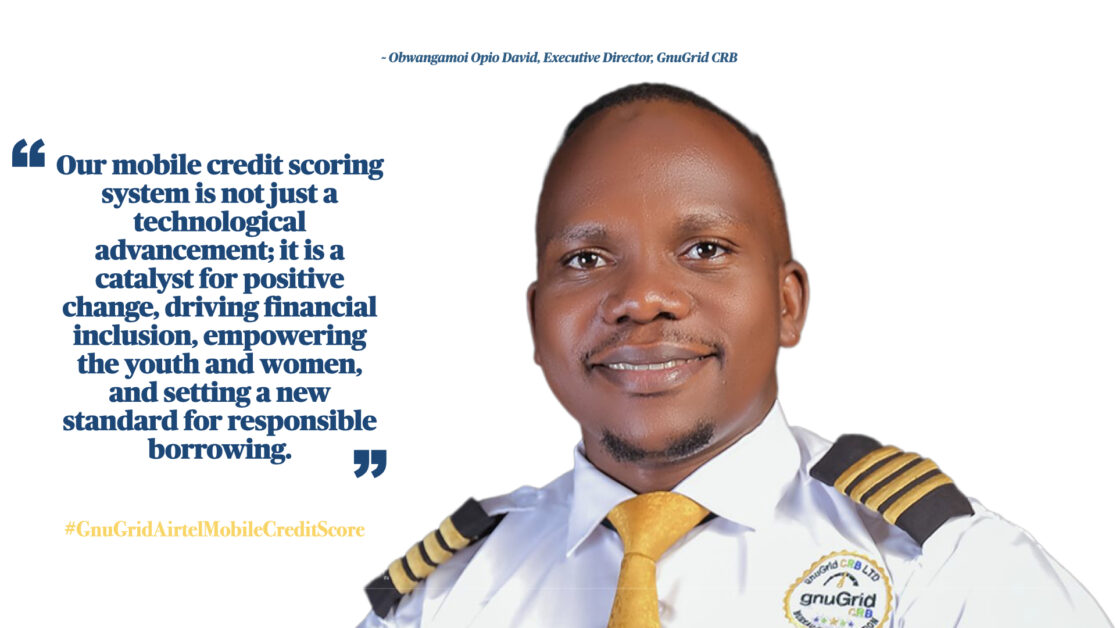
While I may not literally take them fishing, I am teaching them how to “fish” in their own way—not by handing them things on a silver plate, but by instilling a strong work ethic. I believe in competition as a natural part of life, whether for resources, recognition, or achievement. To succeed, one must excel, and that means going beyond the average effort to truly stand out.
That is the mindset I am instilling in my children—spending more time with them, teaching them valuable lessons, and guiding them through my own experiences. I tell them, “Don’t copy everything I did, but learn from both my mistakes and successes.”
I want them to start learning early, to understand what it takes to succeed in today’s world. I point out examples of young entrepreneurs building great companies and emphasize that this is possible for them too.
At home, my sons and daughters all compete. However, I make sure to prepare my son for the societal expectations placed upon him. If he and his sister were to reach out for help in public, chances are people would assist her first, assuming that he should be capable of managing things on his own. I don’t let these expectations limit them—I encourage them to rise above them.
Everything I do now is focused on grooming my children to do better, achieve more, and prepare them for a brighter future.
I think I have no further questions for now—just praying that when you achieve great success, you’ll share some of that success with me! But before we close, is there anything I might have missed or anything you’d like to add as we wrap up the conversation?
One final message, especially for young people: Passion is important, but so is health. I haven’t mentioned it before, but I’m a professional boxer and studied kung fu back in primary school. I’ve always believed that our body is our engine, and maintaining good health is essential—without it, everything else falls apart. I’ve seen too many young people suffer, and even lose their lives, because of avoidable health decisions.
While we don’t control everything, the choices we make every day shape our future—including how and when we leave this world. Take excessive drinking, for example. While I’m not against alcohol, I’ve witnessed individuals suffer organ failure due to uncontrolled drinking, smoking, or reckless behaviors—some leading to severe health consequences like HIV infections. These choices directly impact well-being and should never be taken lightly.
Entrepreneurship mirrors this reality. The decisions we make determine the lifespan of our business. Financial mismanagement, for instance, can cripple a company long-term just as poor health choices affect personal well-being. My decision to become an entrepreneur shaped my journey, and just like in life, every individual must make the right choices at the right time to ensure success.
Ultimately, both health and entrepreneurship demand discipline, focus, and smart decision-making. They are inseparable from the outcomes we experience, and it’s up to each of us to take responsibility for our path forward.
- Share
- Tweet
- Pin it
- Share
- More
Muhereza Kyamutetera
Muhereza Kyamutetera is the Executive Editor of CEO East Africa Magazine. I am a travel enthusiast and the Experiences & Destinations Marketing Manager at EDXTravel. Extremely Ugandaholic. Ask me about #1000Reasons2ExploreUganda and how to Take Your Place In The African Sun.
- @StKyamutetera
- Follow me on Facebook
- Send me an email!
- Website
Related Stories
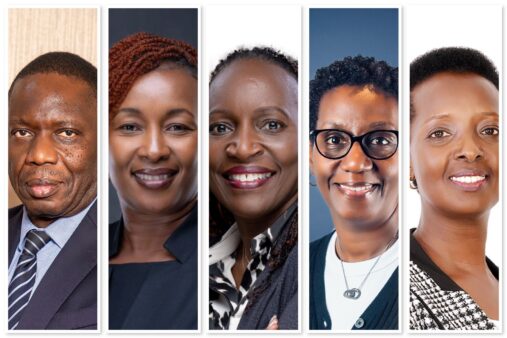

God, Faith, and Leadership: How Uganda’s Top Executives Draw Strength from Above
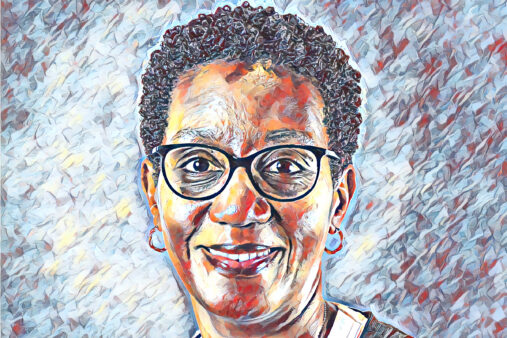

Leading with Purpose: Judy Rugasira on Faith, Integrity, and Stewardship
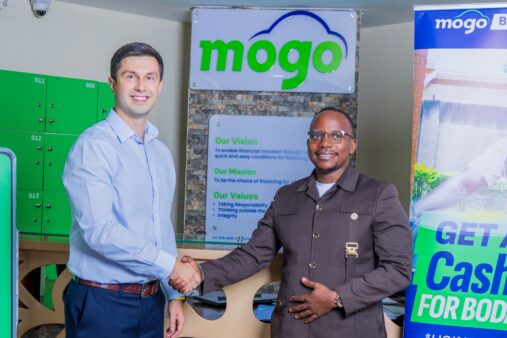

How gnuGrid CRB’s Mobile Credit Score Is Redrawing Uganda’s Financial Inclusion Map and Helping Lenders De-Risk the Last Mile
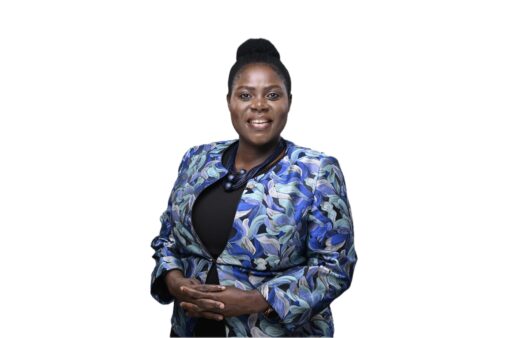

Strategic, and Purpose-Driven: Veronicah Namagembe, the Steady Hand Behind Pride Bank’s Rise
You May Also Like
Could Musa Mageere be Preparing to Take Over the Reins at Luuka Plastics?
LAST DAYS: How UMRA Failed Uganda’s Most Vulnerable Borrowers
Spinning off value? MoMo’s exit tests MTNU’s shareholder promise
Leading for an Audience of One: Sylvia Mulinge on Faith-driven Leadership
Related posts
Meet the Author

Gillion is a multi-concept WordPress theme that lets you create blog, magazine, news, review websites. With clean and functional design and lots of useful features theme will deliver amazing user experience to your clients and readers.
Learn moreCategories
- Africa (12,123)
- Business (562)
- Design (3)
- East Africa (739)
- Guide (7)
- Interior (1)
- Life (1)
- Lifestyle (5)
- Motivation (4)
- People (3)
- Photography (2)
- Rest of Africa (731)
- Review (1)
- Science (72)
- Style (1)
- Travel (5)
- World (173)
Subscribe Now
* You will receive the latest news and updates on your favorite celebrities!


